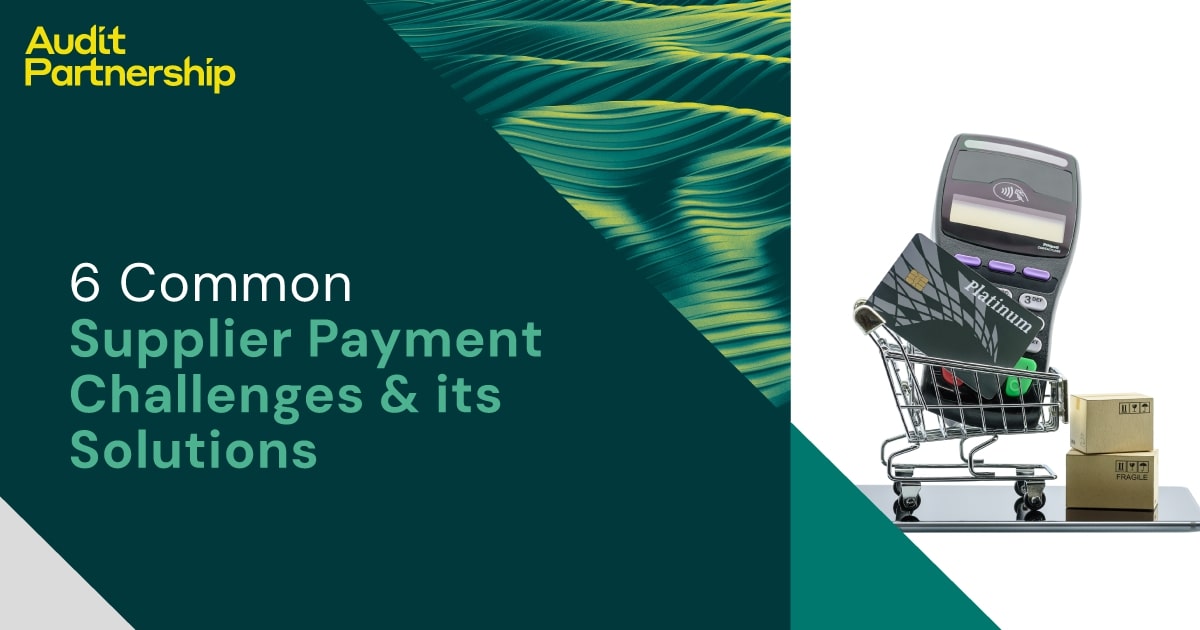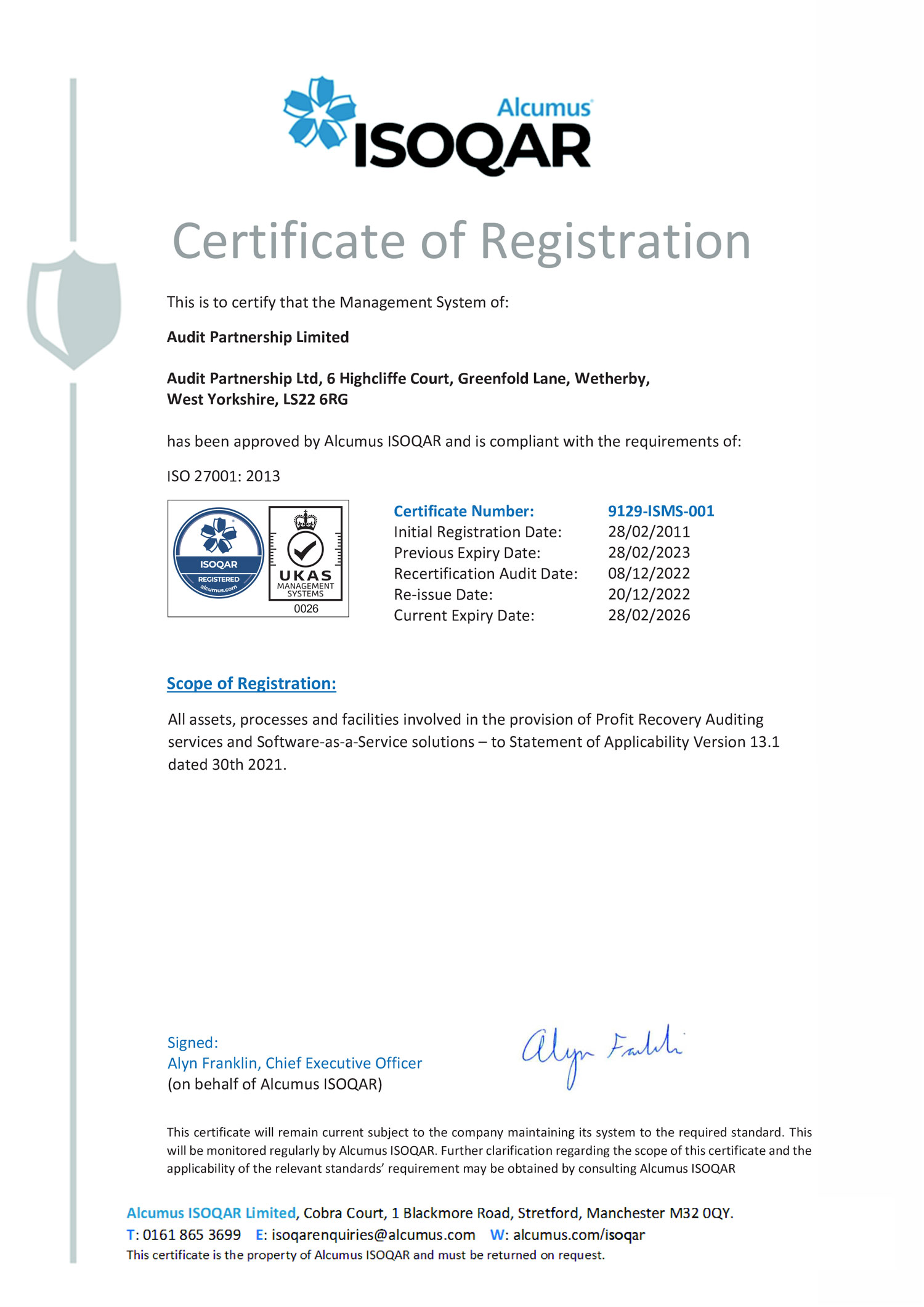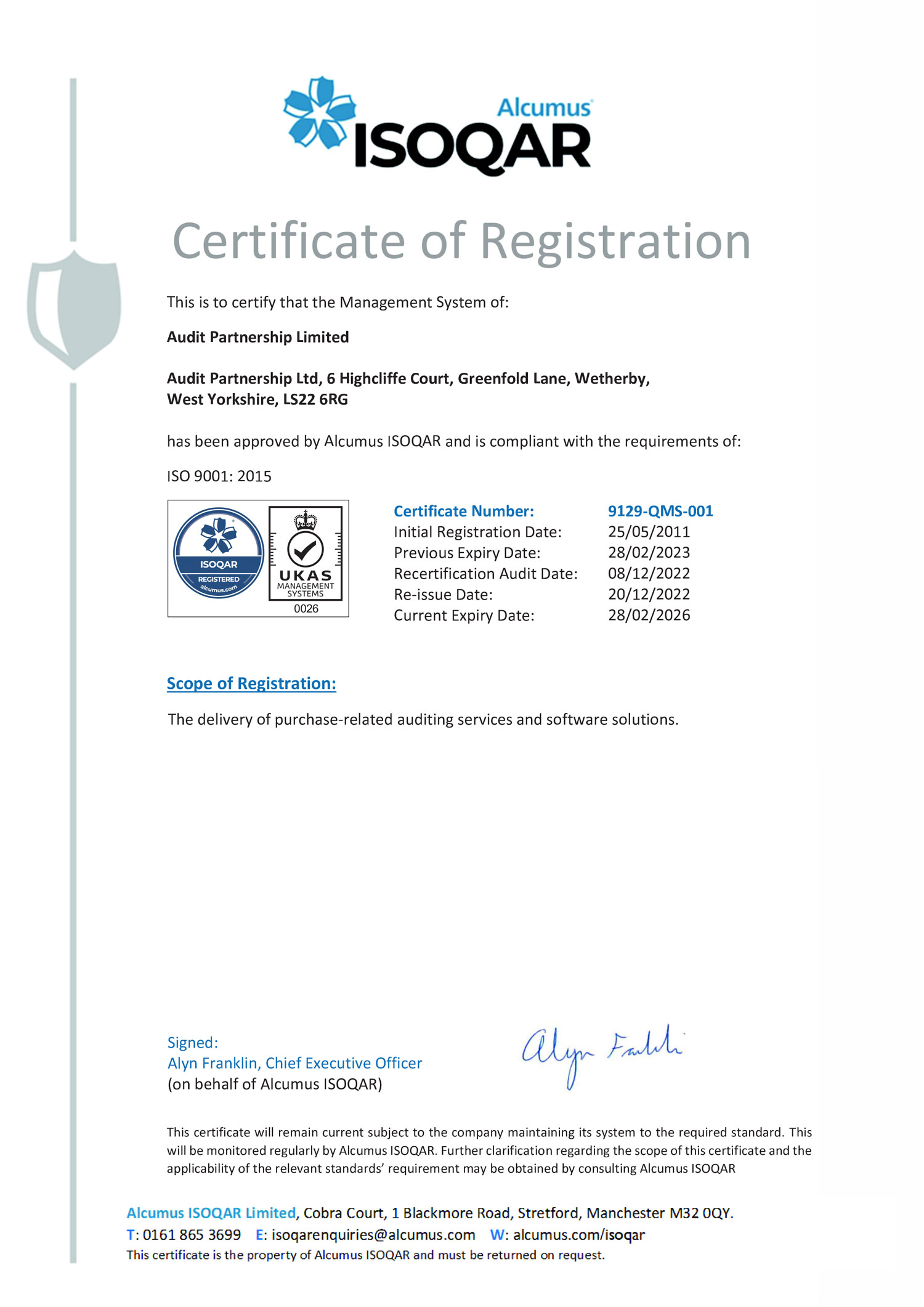
Managing supplier payments is crucial for ensuring smooth operations, strong cash flow, and healthy supplier relationships. However, businesses often face various challenges that can complicate this process. From this blog, we will discover the 5 common supplier payment challenges and offer the right solutions to help organisations manage their payment processes.
Key Features
- Understanding supplier payment challenges.
- Solutions to overcome these challenges.
- Analyse how partnering with Audit Partnership can enhance payment processes.
Understanding Supplier Payment Challenges
Every organisation depends on a network of suppliers to provide products and services efficiently. However, managing supplier payments can lead to significant complexities. Understand the common challenges and implement effective solutions, which can lead to improved payment processes, enhanced supplier relationships and finally, better financial stability for your organisation.
5 Common Supplier Payment Challenges
1. Too Much Data
Challenge: Modern businesses generate vast amounts of data related to supplier transactions, invoices, and payment histories. Managing and analysing this data can overcome finance teams, leading to missed payments or inaccuracies.
Solution: Implementing a centralised data management system tool like Capture™ can help streamline and cleanse data handling. Utilise software that merges all supplier-related information into a single platform, removes false records, and removes duplicates, allowing easier access and control.
2. Too Many Standalone Systems
Challenge: Many organisations use multiple third-party app systems for different functions, such as accounting, procurement, and inventory management. This process might lead to disparities in data and complicate the payment process.
Solution: Integrate your systems into a suitable platform that promotes seamless data flow across functions. Using an integrated Enterprise Resource Planning (ERP) system can enhance communication between departments and ensure consistent data accuracy.
3. Due Payment Management
Challenge: Managing due payments can be tough, especially when dealing with thousands of suppliers. Missing deadlines can result in late fees, misconceptions between relationships and disrupted supply chains.
Solution: Establish a systematic payment schedule and employ automated reminders for upcoming due payments. Additionally, consider utilising automated accounts payable solutions that can track and manage due dates effectively.
4. Supplier Relationship Management
Challenge: Supplier payment challenges can test relationships with key suppliers, potentially disrupting product flow and service quality.
Solution: Foster open communication with suppliers about payment processes and timelines. Regular check-ins and feedback can help build trust and address any issues proactively.
5. Supply Chain Management
Challenge: Weak supply chain management directly impacts supplier payments. Delayed deliveries or quality issues can complicate payment schedules and lead to supplier disputes.
Solution: Improve supply chain visibility using technology which provides real-time tracking and reporting. You can manage supplier expectations and payments more effectively and efficiently by properly analysing the supply chain.
Solutions for Supplier Payment Challenges
To address these common challenges, preferring digital solutions, advanced technologies, automating processes, and building strong relationships with suppliers is core. Utilising recovery audit and payment management tools can help organisations navigate these challenges efficiently.
Why Choose Audit Partnership?
Choosing Audit Partnership means working with a team that optimises your supplier payment processes. With our excellent audit services, we can help you identify inefficiencies, implement strong solutions, and develop strategies to enhance your business growth and build stable supplier relationships.
We proudly serve industries such as retail, transport, construction, energy, telecom, and more. Our software products developed using new technology like AI/ML, data analysis, and modelling, can significantly improve your business and automate repetitive tasks.
Conclusion
In conclusion, effectively managing supplier payments is crucial for the success and stability of any organisation. With Audit Partnership, you gain access to advanced technology automated solutions to address the unique challenges of payment issues. Our services are designed to streamline operations, enhance security, and boost transparency, ensuring you stay ahead of potential outcomes.
Frequently Asked Questions (FAQs) – Common Supplier Payment Challenges
1. What are the most common supplier payment challenges?
The most common challenges include data management issues, which depend on third-party agency systems, managing due payments, maintaining supplier relationships, and supply chain management issues.
2. What should I include in a supplier payment policy?
A supplier payment policy should clearly mention payment terms, procedures for invoice submission, payment deadlines, pre- and post-payment discount criteria, communication guidelines for payment-related inquiries and protocols for resolving disputes or discrepancies.
3. What technologies can help streamline supplier payment processes?
Integrated ERP systems, automated recovery audit software like Capture, an accounts payable all-in-one solution, and data management platforms can significantly improve the efficiency of supplier payment processes.
4. How can I measure the effectiveness of my payment processes?
You can measure effectiveness by tracking key performance indicators (KPIs) such as the percentage of on-time payments, the average time to process invoices, the number of payment disputes, and supplier satisfaction ratings/feedback. Regular performance reviews help determine areas for improvement.
5. What are some signs that my organisation faces supplier payment issues?
Signs may include frequent disputes with suppliers, delays in receiving goods or services, complaints from suppliers about late payments, or an increase in overdue invoices. Additionally, disruptions in your supply chain can indicate payment issues.













